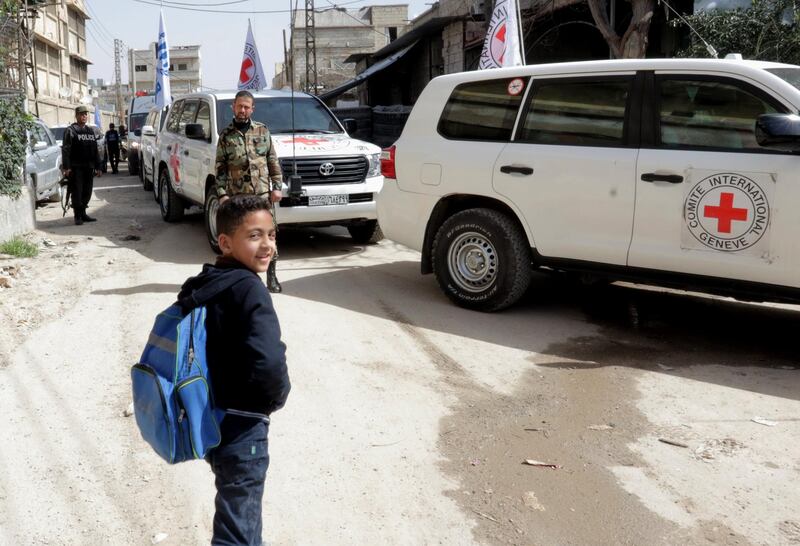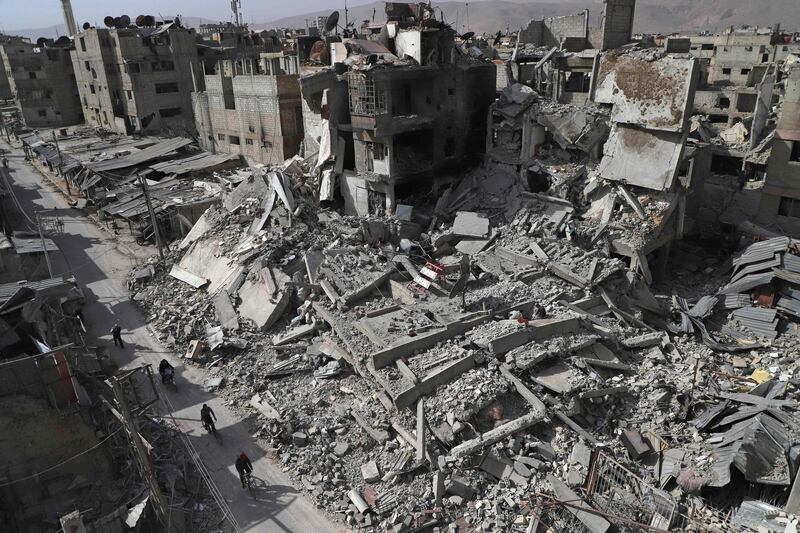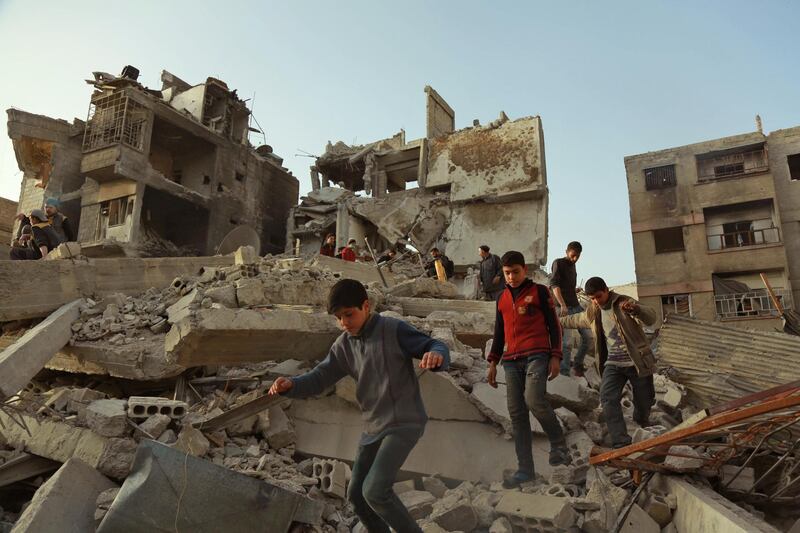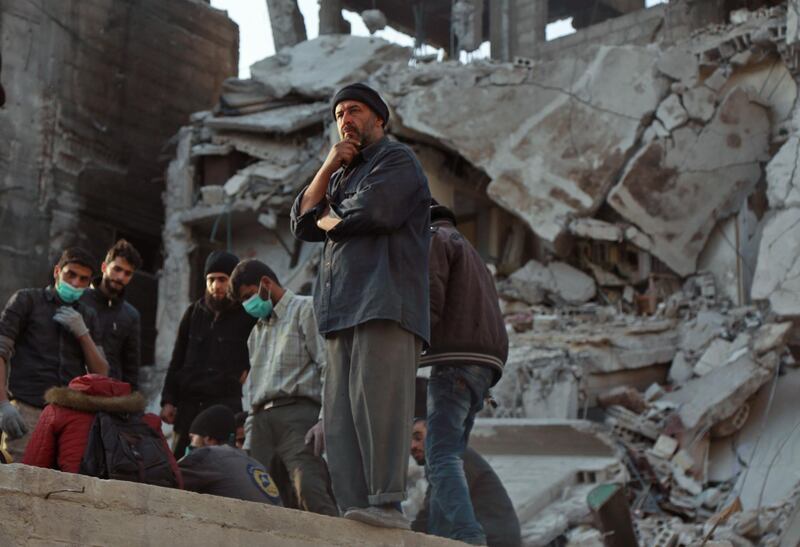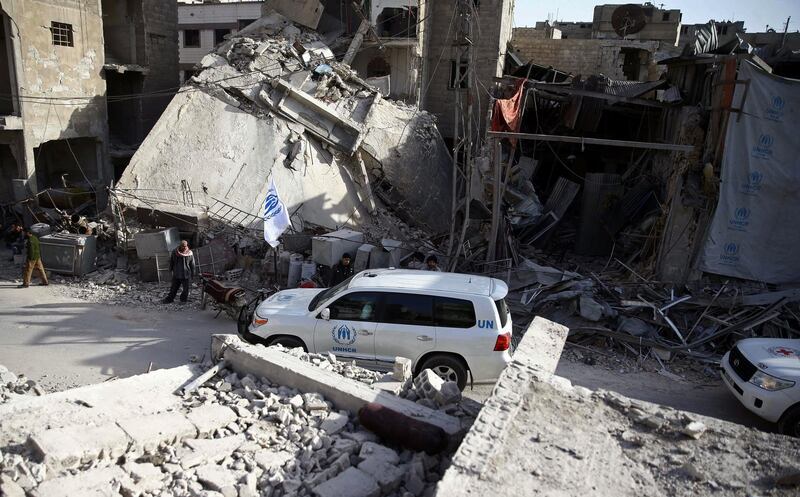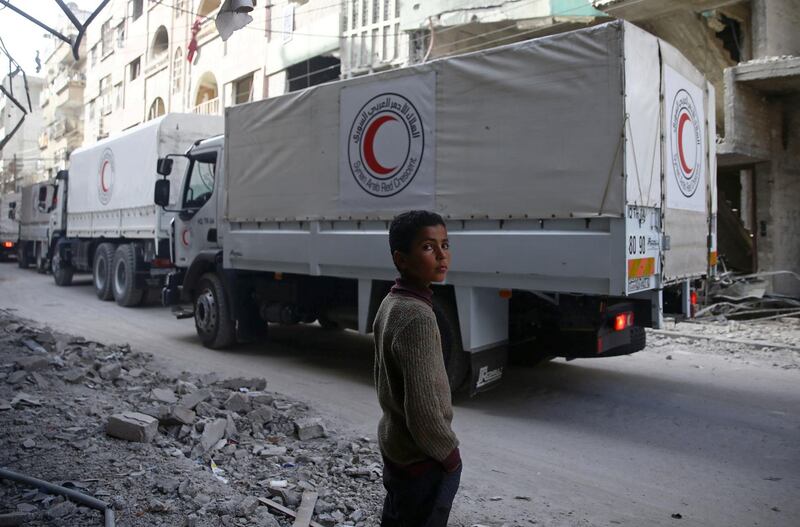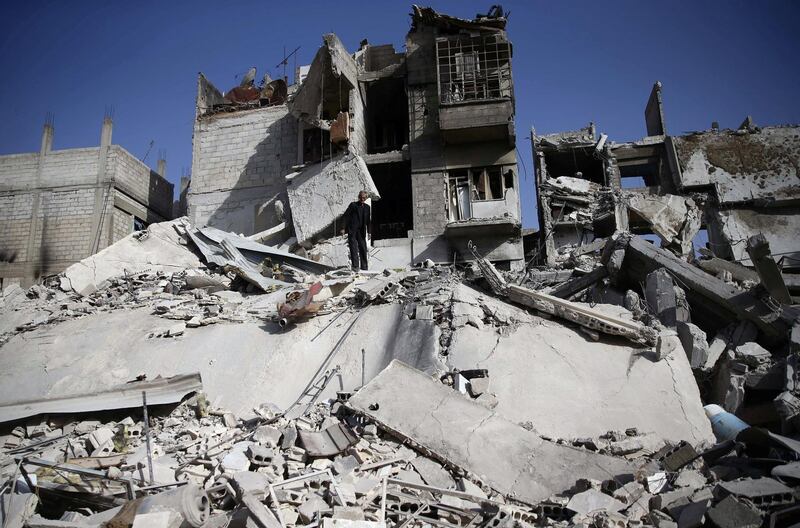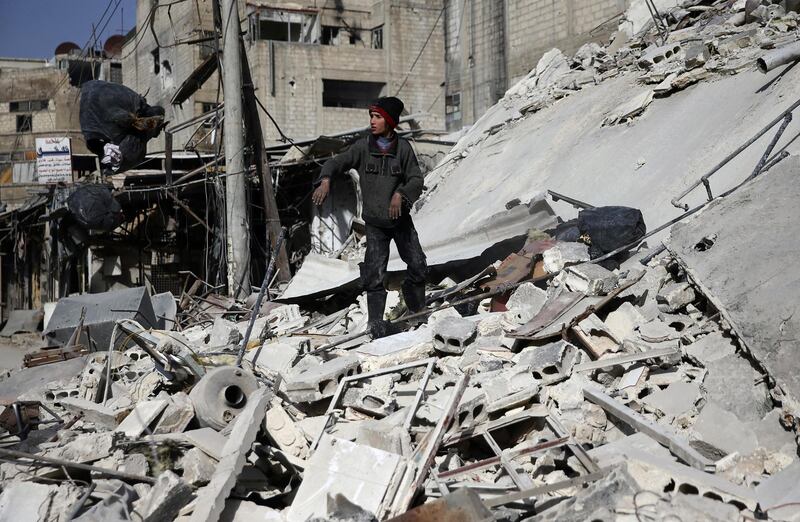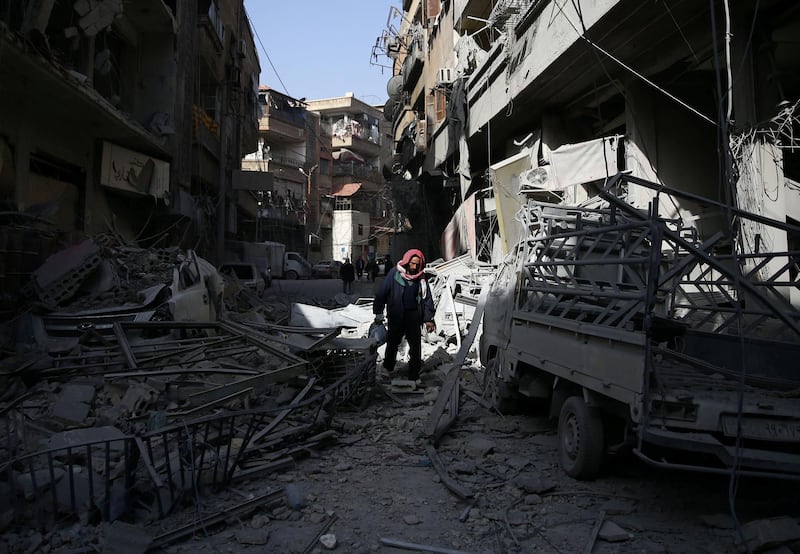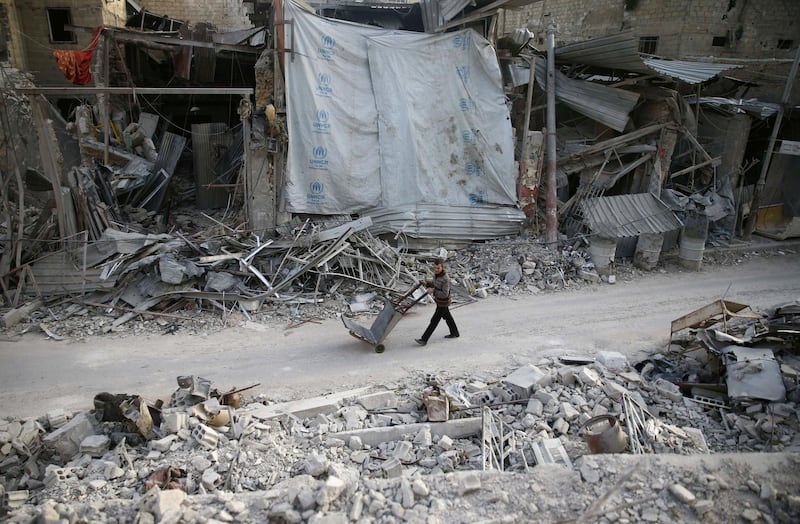An aid convoy delivered urgently needed humanitarian supplies to the main town in Syria's Eastern Ghouta on Monday, as dozens of people were killed in regime bombing of the rebel enclave.
The 46 lorries reached Douma in the first aid delivery to the Damascus suburb since the start of intensified regime bombardments last month.
"This delivery of assistance is a first positive step that would lessen the suffering of the civilians in the area," said Ingy Sedky, a spokeswoman for the International Committee of the Red Cross in Damascus.
The aid delivery included 5,500 food and flour bags – enough for 27,500 people – in addition to medical items.
But Ms Sedky said that more needed to be done.
"A one-time aid delivery will never be enough to fulfil the needs. Repeated and continuous access to Eastern Ghouta by humanitarian organisations is a must," she said.
The @UN @SYRedCrescent @ICRC are entering #Duma in #EastGhouta with health and nutrition supplies, along with food for 27,500 people in need, many life-saving health supplies were not allowed to be loaded pic.twitter.com/EUyaFyggFM
— OCHA Syria (@OCHA_Syria) March 5, 2018
Eastern Ghouta, home to some 400,000 people, has been under a crippling siege and daily bombardment for months. More than 600 civilians have been killed in the last two weeks alone, many of them children.
UN officials previously said that a lack of approvals and consensus among the warring parties, as well as the limited duration of Russian-ordered five-hour daily humanitarian pauses, had made aid delivery impossible.
During an obligatory inspection of Monday's aid convoy conducted by Syrian authorities, many of the supplies in the World Health Organisation’s shipment were rejected, including all trauma, surgical and dialysis kits and insulin, said WHO spokesman Tarik Jaserevic.
__________
Read more:
[ White Helmets chief warns Eastern Ghouta worse than Aleppo ]
[ In Eastern Ghouta rubble, a father looks for his son ]
[ Syrian government recaptures 'more than 25%' of Eastern Ghouta ]
__________
The only previous delivery of UN assistance to Eastern Ghouta this year was on February 14, when a convoy with aid for 7,200 people reached Nashabiyah, a smaller town in the region.
The International Committee of the Red Cross, a partner in Monday's aid convoy with the UN and the Syrian Arab Red Crescent, also pleaded for increased access.
"Repeated and continuous humanitarian access is essential and more must be granted in the coming period," said the ICRC's Middle East director, Robert Mardini.
On Sunday, Syrian President Bashar Al Assad said on state television that the offensive against "terrorism" would continue.
He added that he supported the Russian-sponsored daily truces to allow "the majority of those in Eastern Ghouta" to escape the areas under the control of "terrorists".
Moscow is the main ally of the Syrian regime.
Mr Al Assad and his allies view the rebel groups that hold Eastern Ghouta as terrorists, and say a UN Security Council resolution demanding a countrywide ceasefire does not apply to operations against them.
A week ago Russia unilaterally announced five-hour daily pauses in the fighting, but clashes have continued during those hours and western countries have dismissed it as inadequate.
The French President, Emmanuel Macron, urged his Russian counterpart, Vladimir Putin, in a telephone call on Monday to ensure that Syria accepts without “ambiguity” the UN resolution calling for a 30-day ceasefire.
“Acknowledging that armed opposition groups have accepted the humanitarian truce, and the inadequacy of the five-hour humanitarian 'pause' decided by Russia, President Emmanuel Macron stressed that humanitarian convoys must be able to reach all populations in need unhindered and without further delay," the Elysee Palace said.
The Syrian Observatory for Human Rights, a Britain-based monitoring group, said on Monday that regime bombardment had killed at least 50 civilians.
At least 19 of the victims were killed in the town of Hammuriyeh, where the regime used crude improvised munitions known as "barrels bombs" on civilians, the Observatory said.
According to the monitoring group, an air strike hit the area of Douma about one kilometre from where the aid lorries were unloading.
"Regime forces are advancing at a high pace because operations so far are mostly conducted in farmland," Observatory head Rami Abdel Rahman said, adding that government troops had advanced to within two kilometres of southeastern Douma.
